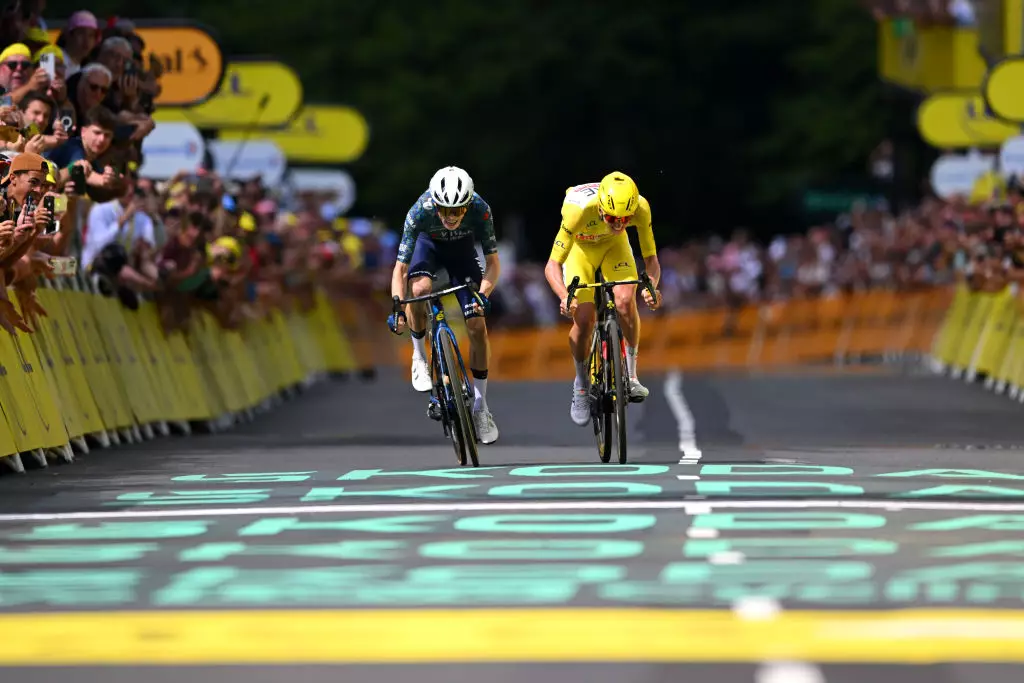In a significant turn of events for cycling enthusiasts in the UK, Warner Bros. Discovery (WBD) has secured exclusive rights to broadcast the Tour de France starting in 2026. This decision comes after the media giant emerged as the sole bidder for the coveted rights, a move that’s stirred considerable debate among fans and industry experts alike. WBD, which operates Eurosport, is now exploring its options for presenting the prestigious cycling event, including the possibility of offering a highlights package via its free-to-air channels.
The ramifications of this shift are palpable, especially considering ITV’s previous role in showcasing the Tour. With ITV’s current deal set to expire following the 2025 edition, fans are left contemplating the implications of transitioning to a primarily pay-to-view model. As the cycling landscape evolves, this development further challenges the way audiences engage with the sport.
The allure of cycling in the UK has been steadily growing, thanks in part to the nation’s impressive performance in international competitions such as the Olympics. The success of British cyclists like Bradley Wiggins, Chris Froome, and Geraint Thomas has undoubtedly captured public interest and elevated the sport’s profile. With the funding prowess of the British Ineos team, which has established itself as a formidable force within professional cycling, the sport’s trajectory appears promising.
Yet, the decision by WBD to take control of the Tour de France rights—notably when no free-to-air broadcaster pursued the opportunity—raises critical questions. Will the exclusivity result in a drop in viewership? While Eurosport has made strides in broadcasting other Grand Tours, including the Giro d’Italia, the fear remains that a paywall could alienate many long-time fans who are accustomed to unfettered access through free channels like ITV.
The reaction from cycling aficionados has been overwhelmingly negative in light of this news. Fans are voicing concerns that transitioning to a subscription model for a race steeped in heritage and tradition may lead to a diluted following in the UK. Cycling has roots embedded deep in the British sports culture; hence, eliminating free-to-air coverage could exclude a demographic that has relied on accessible broadcasting to engage with the sport.
Although WBD has declined to provide extensive comments on the future of its coverage, there are indications that it is contemplating how to integrate free content alongside its subscription offerings. This dual approach, while potentially beneficial in retaining some accessibility, remains untested and uncertain.
ITV’s decision not to pursue the Tour de France rights, particularly against the backdrop of securing deals for key soccer matches, highlights a shift in priorities within the broadcast landscape. According to ITV, the decision was made without further elaboration on its corporate strategy, leaving many to speculate whether cycling has taken a backseat to other sports that draw larger audiences and greater advertising revenues.
As of now, the combination of both ITV and WBD’s Eurosport covering the 2025 Tour de France presents a unique opportunity for fans. However, with the transition in broadcasting rights slated for 2026, it is imperative for stakeholders to deliberate on how best to adapt to a new era. The focus must remain on nurturing the sport’s growing base in the UK while remaining wary of the potential pitfalls posed by exclusive, subscription-based models.
The Tour de France remains a beacon of cycling, consistently drawing attention not just for the athletes but also for its cultural significance. As Warner Bros. Discovery prepares to unveil its coverage strategy, the critical task ahead will be ensuring that this shift does not alienate a passionate fan base. The evolution of media contracts in sport often reflects broader societal changes in consumption, and in the case of cycling, the hope is that accessibility prevails in ensuring that the excitement of the Tour de France still resonates with both long-standing and new fans alike. The path ahead may be fraught with challenges, but there remains a shared hope that cycling’s premier event will continue to thrive on British soil.

